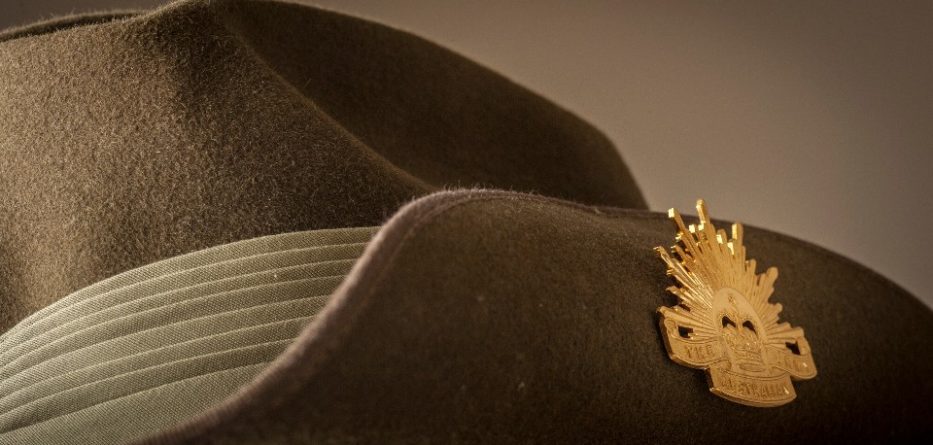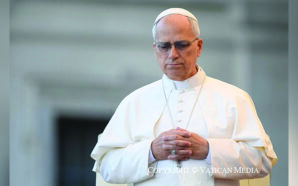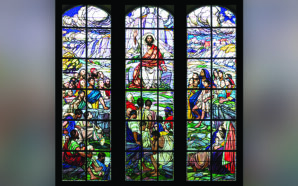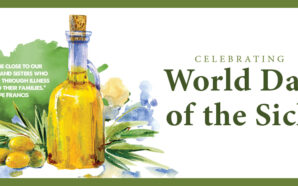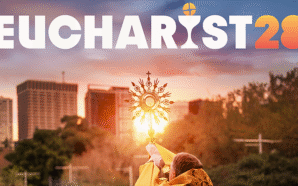Homily for the Fourth Sunday of Easter
Readings: Acts 4:8-12; 1 John 3:1-2; John 10:11-18
25 April 2021
It’s Anzac Day. We will remember them.
At Communion, the Choir will sing Laurence Binyon’s Ode:
They shall grow not old, as we that are left grow old;
Age shall not weary them, nor the years condemn.
At the going down of the sun and in the morning
We will remember them.
In the week that our government announced a royal commission into Defence and Veterans’ Suicide, we know that age has wearied many of those who have returned from armed conflict, some of them being so weighed down that suicide has seemed the only or preferred option.
Listen at https://soundcloud.com/frank-brennan-6/anzac-day-homily-2021
In the week that our government announced the withdrawal of our troops from Afghanistan after twenty years of engagement in a theatre of war far removed from the world of most Australians, we know that many veterans have returned home to families, loved ones and neighbours sharing their questions and confusion about the purpose of their ongoing deployments. It’s fourteen years since then Chief of Army Lieutenant General Peter Leahy gave a speech to the Royal Australian Infantry Corps telling them: “These are very challenging times. We are an army at war in a nation that feels as though it is blissfully at peace.” That challenge has become all the greater in these last fourteen years. It was a decade ago that Malcolm Turnbull when on the Opposition front bench told Parliament that we were asking our soldiers to be both warriors and nation builders:[1]
“Much has been said about this very difficult war in Afghanistan, and we should debate it more often in this place. One of our omissions as a parliament has been that we have committed Australian troops to this long war for a long time but have given relatively little attention to debating why they went there in the first place, why they are staying there and what the strategy is for them to leave and finally come home. We owe our troops much more attention. Loyalty, devotion and gratitude are a given, but we owe them our responsibility, our intellect, our care and our consideration in determining whether and to what extent the mission remains warranted. It should always be a matter of constant justification to the Australian people and our serving men and women as to why they remain in harm’s way.”
We and our leaders let our soldiers down for another ten years, and things went bad, very bad. Not even Mr Turnbull as Prime Minister invited parliamentary debate on our long-running commitment in Afghanistan.
This is the first ANZAC Day since the published findings of Major General Paul Brereton, an Assistant Inspector‐General of the Australian Defence Force who found that between 2009 and 2013 there were 23 incidents in Afghanistan of alleged unlawful killings of 39 people, perpetrated by 25 Australian Special Forces soldiers, with the criminal behaviour being “commenced, committed, continued and concealed at the corporal or sergeant level”. Those killed were prisoners, farmers and other civilians. “This shameful record includes alleged instances in which new patrol members were coerced to shoot a prisoner to achieve the soldier’s first kill, in an appalling practice known as “blooding”.” Major General Brereton conceded that “commanders at troop, squadron and Special Operations Task Group level must bear some responsibility for the events that happened “on their watch”.” Attempting to limit the damage, Brereton found: “But for a small number of patrol commanders, and their protégées, it would not have been thought of, it would not have begun, it would not have continued, and it would have been discovered. It is overwhelmingly at that level that responsibility resides.”
We the public are sharing something of the trauma and confusion of those many fine Australian soldiers who were sent in our name to Afghanistan wondering how structures of command and control were able to break down so completely, how military culture became so corrupted, and how even a VC hero could find himself under a heavy cloud of suspicion.
This ANZAC Day falls on the 4th Sunday of Easter when we hear John’s account of the good shepherd. Even those of us who have lived all our lives in cities know that there are good shepherds and bad shepherds, and we know the difference. The test comes when the wolf appears. Jesus is not just your everyday good shepherd. He is the good shepherd who lays down his life for his sheep. He is the good shepherd who knows his sheep and whose sheep know him.
In his apostolic exhortation Evangelii Gaudium Pope Francis says:[2]
“An evangelizing community gets involved by word and deed in people’s daily lives; it bridges distances, it is willing to abase itself if necessary, and it embraces human life, touching the suffering flesh of Christ in others. Evangelizers thus take on the “smell of the sheep” and the sheep are willing to hear their voice. An evangelizing community is also supportive, standing by people at every step of the way, no matter how difficult or lengthy this may prove to be. It is familiar with patient expectation and apostolic endurance. Evangelization consists mostly of patience and disregard for constraints of time.”
This ANZAC Day we are called to stand with those in our midst who continue to pay the price of the trauma of war service wondering what was the purpose and whether it was achieved, those who have returned from war to live amongst their own who think they live blissfully at peace.
Later in his exhortation Evangelii Gaudium, Francis says:[3]
“Today more than ever we need men and women who, on the basis of their experience of accompanying others, are familiar with processes which call for prudence, understanding, patience and docility to the Spirit, so that they can protect the sheep from wolves who would scatter the flock.”
There are times when the wolves are to be found in the midst of the flock, and not just outside it. It’s easy to play the blame game. It’s easy to evade responsibility. Attempting to model ourselves individually and as community as the good shepherd, let’s pray for the prudence, understanding, patience and docility to the Spirit needed so that we can protect the sheep from the wolves who would scatter the flock.
In today’s first reading from the Acts of the Apostles, Peter reminds the rulers of the people and the elders: “This is the stone rejected by you the builders, but which has proved to be the keystone.” Whoever thought we would be thanking God for Jacqui Lambie persistently standing up in the Senate and demanding change. Seven years ago in her first speech in the Senate, Senator Lambie in her inimitable style said:[4]
“Mr President, perhaps one of the reasons why God performed a miracle and put me in this place is because I intend to be part of the greatest reforms of Australia’s Department of Veterans’ Affairs and our Defence Force. The Department of Veterans’ Affairs, despite the best efforts of individual public servants, over time has become dysfunctional and, worse than that, is dangerous. The systemic failure to care for our veterans, both young and old, is not confined to the Department of Veterans Affairs. The seeds for this failure and appalling treatment of many former members of our Australian Defence Force can be found in the complete failure of leadership at the highest levels of the Australian defence forces. A culture of cover-up, lies and official misconduct can be found in both the Department of Veterans’ Affairs and the Australian Defence Force. The only remedy to address the gross injustices is for a Royal Commission to be held into the Department of Veterans’ Affairs, the senior military leadership, and their toxic culture of cover-up, which has been present for more than two decades.”
If you were like me, you were not listening, or you thought this all a little over the top from the new Tasmanian Senator. My colleague Damian Powell, the Principal of Janet Clark Hall, has reminded us:”Now is the time to reflect carefully on what we ask of, and how we best support, those soldiers who serve in our name.”[5]
They shall grow not old, as we that are left grow old;
Age shall not weary them, nor the years condemn.
At the going down of the sun and in the morning
We will remember them.
Lest we forget!
[1] House of Representatives, Hansard, 21 November 2011, p.13115
[2] Pope Francis, Evangelii Gaudium, #24
[3] Pope Francis, Evangelii Gaudium, #171
[4] Senate Hansard, 3 September 2014, p. 6399
[5] Damian Powell, The Conversation, 19 November 2020, at https://theconversation.com/changing-the-culture-of-our-sas-forces-is-no-easy-fix-instead-we-need-to-face-the-true-costs-of-war-150058
Fr Frank Brennan SJ is the Rector of Newman College, Melbourne, the Distinguished Fellow of the PM Glynn Institute, Australian Catholic University, and the former CEO of Catholic Social Services Australia (CSSA).




